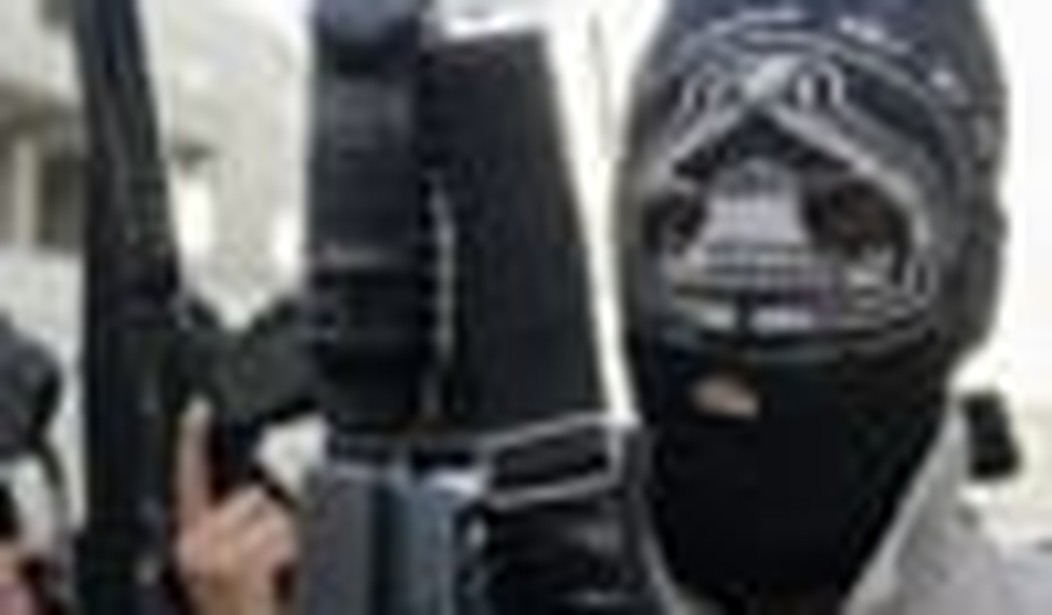I’ve written two articles for Pajamas Media centered on the use of Facebook and other social media sites by jihadists, as well as those who merely seek Israel’s destruction. On both of these articles, several people have made comments to the effect that we should leave these groups in place for their intelligence value. This has been the subject of an ongoing debate in the “counter-jihad” community, but I suspect those who advocate this hands-off approach do not fully grasp the situation.
First, there are far too many of these groups for the Arabic-, Farsi-, Urdu-, and other foreign language-speaking analysts and translators at our intelligence agencies to monitor. By reducing their number, members are in effect funneled into fora that can be monitored.
Second, individuals in these groups may be unintelligent or uneducated, but that does not mean the aggregate is stupid. They know they are monitored, and in most cases, sensitive intelligence is not posted in plain sight. Instead, social media is used to organize people and collect data enabling other forms of communication:
A. Email accounts are shared by conspirators, with messages concealed by leaving them in the drafts folder. Emails unsent stay off the radar of intelligence services.
B. Such groups often post addresses for websites containing recruiting and indoctrination materials that are prohibited at social network sites. This allows the group or profile page to maintain the appearance of innocence, while funneling people to locations where they can be recruited more effectively. Again, these sites are too numerous for law enforcement and intelligence agencies to monitor them all.
C. Conspirators can be given links to encrypted files they can download, containing recruiting materials, operational details, or instructions on terrorist tradecraft like bomb making manuals, hosted on file sharing sites like MegaUpload, RapidShare or BitTorrent.
D. Similarly, terrorists use websites built on platforms like Joomla, Drupal, and WordPress to conceal communications on the site’s “back end” or in restricted content. This means that visiting the website will not reveal anything untoward, but if you log in to the site’s administration panel, or if you have special access privileges, you will find “unpublished” or restricted articles containing the classified information.
E. Some groups at Facebook are closed to uninvited members, masking their communications from prying eyes, and at YouTube illicit videos can also be made private and shared with a select audience. These may afford somewhat greater intelligence value, as less sophisticated or incautious members may be more willing to divulge sensitive information because they believe they are safe, but it also requires the ability to infiltrate or “hack” the group to see what they are saying.
The value of social networking sites is the wide reach they provide. Facebook alone has more than a half-billion active users, and according to Google, YouTube also boasts about a half-billion unique users and receives 1.4 billion hits monthly. At no previous time in history have individuals or groups of limited means had access to networks that span the globe, and in the past, only large media outlets could reach such staggering numbers of people. Today, YouTube videos frequently go “viral” and millions of people view them in a relatively short time. Facebook groups can accumulate millions of members, and these member lists then form the core of activist networks that are very difficult to disband, even if the group page is ultimately removed from the website.
Our intelligence and law enforcement services are vastly understaffed with qualified translators and analysts. They simply cannot keep abreast of all of the intelligence constantly streaming in, so even if the NSA is able to record every single electronic communication, as has been alleged, there are not enough people to analyze them in real-time. Case in point: six months after he flew a jet into the World Trade Center on 9/11, Mohammed Atta’s visa was APPROVED.
In the past year, two high-profile terrorist attacks have been thwarted as a result of jihadists posting their intentions on Facebook. On its face, this would seem to suggest Facebook is a treasure trove of intelligence; however in both cases, law enforcement officials were alerted by friends or acquaintances of the would-be bombers, and not through any intelligence gathering program monitoring Facebook. Had it not been for these informants, the headlines may have read quite differently, and perhaps the media and public would be less sanguine about the continued use of social networks by the sworn enemies of Western civilization.
The Internet is a battlefield, one of many fronts in a global conflict for the heart and mind, flesh and blood of our civilization. It is imperative that we deny our enemies online bases where they can organize and plot against us. If the CIA only has 50 Predator drones in Afghanistan, and those drones are presented with many thousands of targets, the drones become less useful because they cannot possibly monitor them all. The same holds true on the virtual battlefield. By forcing the removal of jihadist groups and profiles, we can disrupt their communications, reduce their recruiting, indoctrination, and training abilities, demoralize their membership, and funnel their adherents to fewer locations that are more easily monitored by the law enforcement and intelligence communities. A hands-off approach merely cedes the battlefield to our enemies.









Join the conversation as a VIP Member